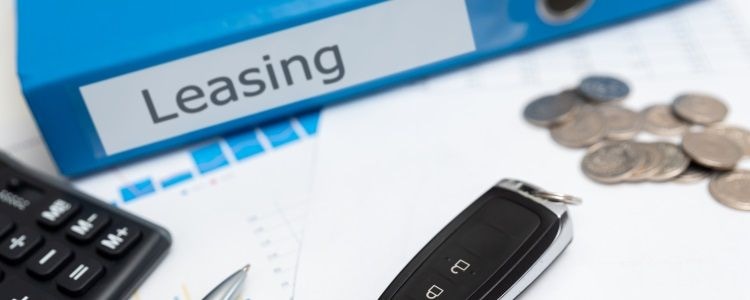Discussing what happens to assets, loans, and leases if someone passes away isn’t a very fun subject, but it’s important to understand nonetheless. There are many questions that may come up after a death, such as "What happens to a lease when the lessee passes?". The answer all depends on the individual situation. Here’s what may happen to the vehicle if someone dies while they have a car lease.

What Happens To A Car Lease When Someone Dies?
Car Leases After Death
Often, debt and leases don’t disappear after someone passes. If the deceased person was in the middle of paying off a car lease, the lease contract doesn’t typically end automatically because they died. The contract and who’s responsible for the lease dictate most of what can and does happen if the lessee dies during the lease term.
If the deceased had a cosigner on the lease, the lease typically becomes the cosigner’s responsibility since they agreed to repay it if the lessee becomes unable to. Co-borrowers are in a similar boat since co-borrowers are responsible for the loan payments regardless of the other co-borrower’s situation. If one co-borrower passes, the responsibility of repaying the lease is all on the surviving co-borrower.
If there isn’t a cosigner or co-borrower on the lease, then typically, the remaining lease payments are still owed to the leasing company and are wrapped up in the estate. If the estate has enough funds, it’s likely that the estate is required to repay what’s owed to the leasing company.
Other Options: Early Termination Or Lease Transfer
 Occasionally, leasing contracts allow for early termination in the event of a death. Or, the person managing the estate may be able to arrange a lease transfer. For either option to be viable, they need to be acted upon quickly.
Occasionally, leasing contracts allow for early termination in the event of a death. Or, the person managing the estate may be able to arrange a lease transfer. For either option to be viable, they need to be acted upon quickly.
For an early termination, the person managing the deceased’s estate should review the terms of the leasing contract right away to see if a lessee’s death is enough to terminate the lease. Usually, they need to provide a death certificate proving that the lessee has passed, and proof that they’re the administrator of the estate.
The leasing company may allow the vehicle to be returned and terminate the contract for a flat fee – but this can depend on the status of the lease. If the lessee was behind on payments, then the leasing company may not be as accommodating. Instead, they may simply repossess the leased vehicle and then require the deficiency balance to be repaid by the estate.
Sometimes, a leasing company allows the lease to be transferred to someone else, this is called a lease transfer or lease swap. The person assuming the lease must qualify and prove they can successfully pay the car payments, and also needs to meet the credit score requirements of the leasing company.
A lease transfer can take time, and if payments are due while searching for someone to take over the lease, those car payments must be made in the meantime to avoid default and repossession.
Managing A Car Lease
Since car leasing is different than managing an auto loan, it’s important to understand the leasing contract and discuss all your options with the leasing company. And the quicker you act and the faster you contact the leasing company, the more options you may have available if you're managing the estate for someone who has passed. Auto leasing isn’t for everyone, but if you're able to assume the deceased's lease, you may be able to buy out the lease and then sell the vehicle and use the money for an auto loan of your own.

Senior Automotive Financing Editor
Meghan has been writing professionally for over 25 years. She is expertly versed in automotive special financing and pricing analysis, having published hundreds of articles on Auto Credit Express and its sister sites, CarsDirect, and The Car Connection. Read more
Suggested Posts For You
Receive Free Updates
Get the latest credit tips, resources and advice delivered straight to your inbox.













